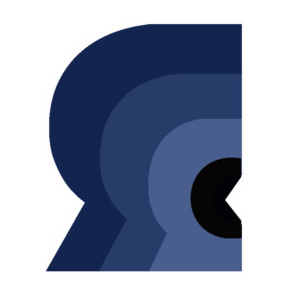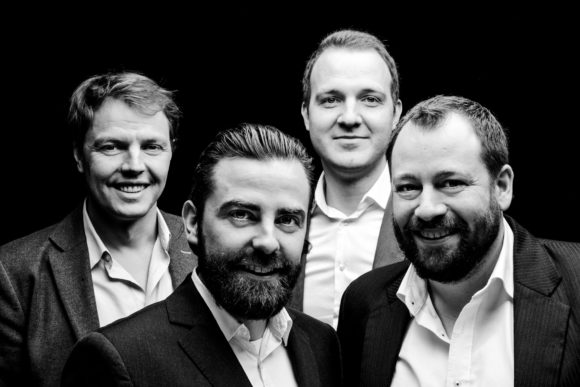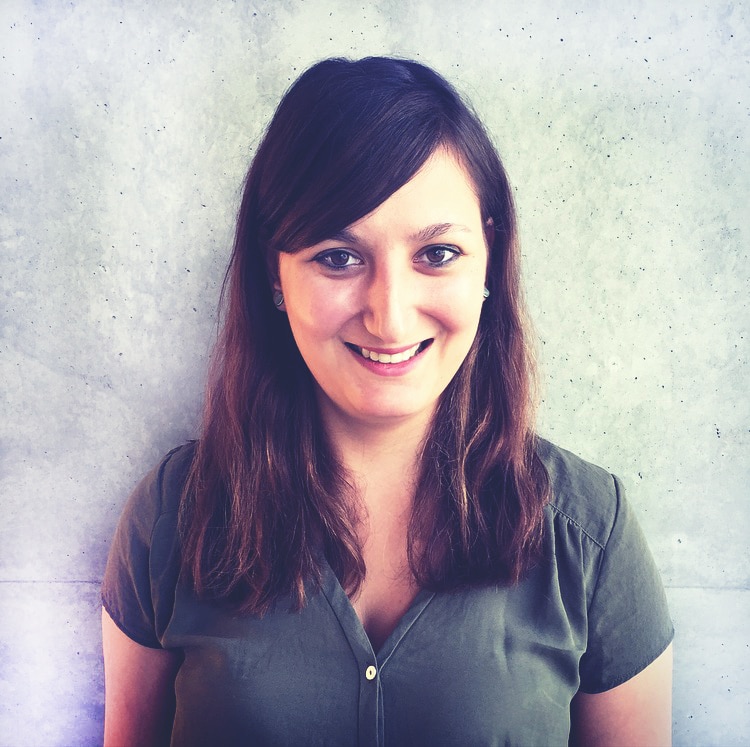Meet our CODE_n CONTEST Finalists 2016: R3 - Reliable Realtime Radio Communication GmbH from Germany
Wireless communication as safe and secure as cable-based communication – but cheaper, lighter and more flexible in usage. That’s what R3, one of our CODE_n CONTEST finalists in the “Connected Mobility” cluster, is offering with their invention called EchoRing™. Dr. Mathias Bohge, Founder & Managing Director, told us more about R3.
 What is R3 all about?
What is R3 all about?
Mathias: R3Coms develops and commercializes ultra-reliable real-time enabled wireless communication infrastructure – currently focusing on industrial applications where robustness, safety and security are a primary concern. Generally, our technology applies to the area of IoT where in the future wireless communication with deterministic, robustness, low latency and safety features are required as more and more communication between embedded systems (M2M) will arise.
With our products we reduce the costs imposed by today’s cable-based communication as cables are not an economical feasible option for the increasing connectivity and mobility demand in the future. In such case, cables are not flexible, impose high planning and execution complexity and increase ultimately cost. Our technology is a scalable software that is implemented on standard off-the-shelf radio chips and we offer two performance categories of our software according to the need of the higher layer application.
How did you come up with the idea?
Mathias: We are the worldwide expert in ultra-reliable real-time wireless communications. Basis for our experience and knowledge is a long period of analytical research by Prof. James Gross from the KTH in Sweden. In 2012 he filed the first related patent application and in 2015 a first demonstrator/prototype was ready. There was a lot of positive response when it was first presented to a public audience, so Prof. Gross and Christian Dombrowski, a PhD student of his, decided to found a company to commercialize their invention: EchoRing™.
Once upon a time, Prof. Gross and Dr. Bohge did their PhD together at the Berlin Institute of Technology (TUB). While Prof. Gross became an award winning scientist, Dr. Bohge made his way as a strategic consultant at a top management consultancy. Here, he met Florian Bonanati, expert in business development and in the field of restructuring for more than eight years. As they both became dads at the turn of the year 2014/2015 (independently), they decided to leave consulting behind. By chance, Dr. Bohge met Prof. Gross again.
We first sat together in May 2015 to discuss prospective opportunities and challenges, founded our company in July 2015, had our first industry cooperation with BMW in September 2015 and won first prices in December 2015: Our EchoRing™ technology and respective communication system was awarded a VDE/ITG Software Award and the Deep Tech Award of the city of Berlin.
“Digital Disruption“ – that’s the motto of this year’s CODE_n CONTEST. What makes your solution innovative, what makes it disruptive?
Mathias: As previously stated: cables are not an economical feasible option for the increasing connectivity and mobility demands of industry 4.0 (I4.0) and the Internet of Things (IoT). Our EchoRing™ prototype shows that in most situations, wireless communication can be parameterized to be as safe and secure as cable-based communication – while at the same time being cheaper, lighter and more flexible in usage. You can observe this trend in consumer electronics: wherever wireless links are feasible, cables will be replaced. Before EchoRing™, the wireless links where not feasible to be used in industrial applications. Now, the replacement can start.

The R3 Team with founder and Managing Director Dr Mathias Bohge (right) © R3
You’re one of the 13 finalists in the Connected Mobility contest cluster. Which challenges do you think young companies have to face in this sector? How do you handle these challenges?
Mathias: Young companies in the Communication Technology Sector often have an advantage of knowing newest technology trends, being very flexible and open and fast in adopting these in new system concepts. However, they often lack in market access and customer contacts. Large companies tend not to buy products from startups, as they cannot guarantee that their product will be held available for as long as the perspective customer needs it. Also, it is not too easy to collect funding as a Deep Tech Start-Up in Germany, and the density of well-educated wireless engineers is very low.
We are facing these challenges by cooperating with global players with target market access and settled customer relations. In addition to placing our own products, we help them to improve their products with our technology. Regarding young academics, we are in contact with three leading universities in Europe (KTH Stockholm, TUB Berlin, RWTH Aachen) to discover talents as early as possible. Besides opportunities with strategic investors, we finance ourselves through governmental support programs (e.g. IBB ProFIT and BMWi SIGNO) and cooperate in governmental co-financed (BMBF) cooperation projects with large industrial players (Deutsche Telekom, KuKa, BMW being among them).
You’re based in Berlin. Which opportunities generated by Industry 4.0 o do you see for German industry locations?
Mathias: Germany has a very strong background in manufacturing systems engineering. This is a great basis to start from. However, in the recent years – especially when it comes to automotive – it has been shown that American IT companies are much more knowledgeable when it comes to modern and disruptive business models, and that they have enough money to buy the engineering and manufacturing opportunities to build the according products. Hence, when it comes to be a winner in the IoT/I4.0 race, it’s gonna be a race between IT and machine manufacturing companies that will be won by the German industry, if it adopts the digital business faster than the IT companies will be able to acquire adequate manufacturing opportunities. I can only advice the settled German industrial players to closely cooperate with promising startups – R3Coms being only one among them.
Thanks for the interview, Mathias!






Write a comment